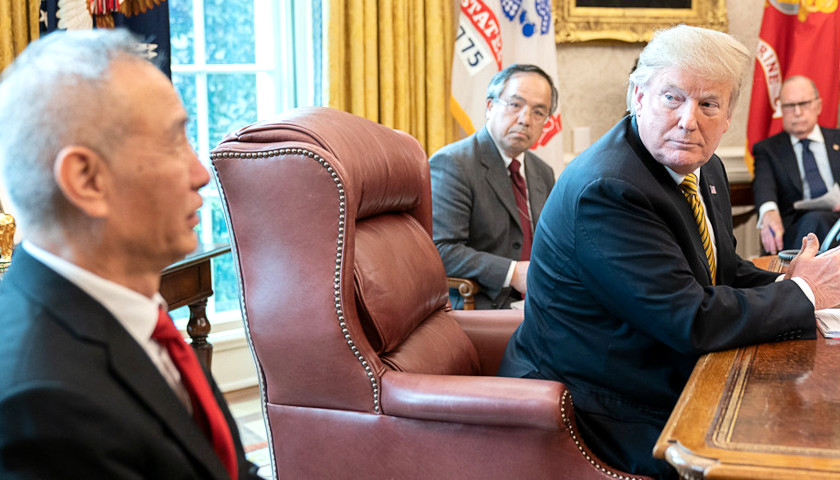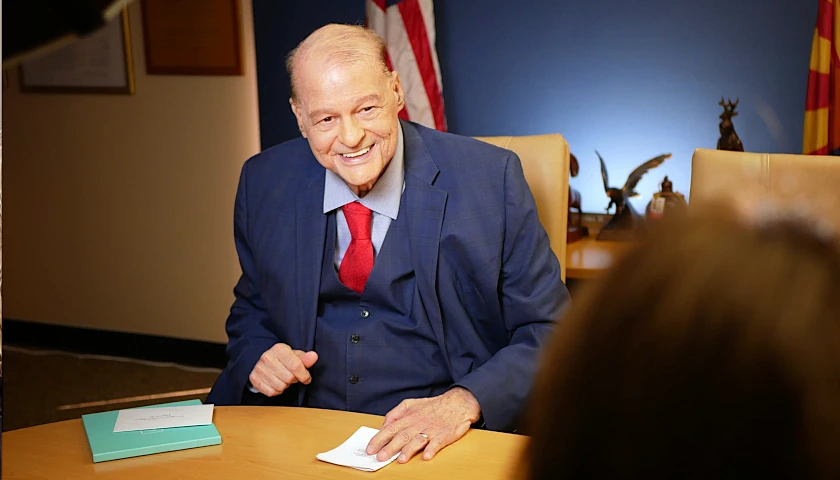by Eric J. Lyman
With Donald Trump the almost-certain Republican Party nominee for president – and given his lead against Democratic incumbent Joe Biden in most national polls – two broad camps are emerging among global leaders on who they’d like to see in White House a year from now.
A Trump victory in November would likely result in widespread and dramatic changes in the global order – from changing the nature of the U.S.’s relationship with NATO allies, Ukraine, and Israel to the tariffs that govern international trade, worldwide refugee policies and to multilateral efforts to combat climate change.
Trump, president from 2016 to 2019, is a world-class disrupter, and the pro-Trump camp among global leaders is large and filled with like-minded figures. Among them are three leaders often seen as their country’s version of Trump: Argentina’s newly-elected Javier Milei, Italian Prime Minister Giorgia Meloni, and Geert Wilders, the leader of the right-wing coalition in the Netherlands.
If imitation is the sincerest form of flattery, then British Prime Minister Rishi Sunak is paying homage to Trump in his campaign style that includes a hardline refugee policy and other topics that differentiate him from his political rivals.
In Israel, Benjamin Netanyahu is seen as distancing himself from the Biden administration as the White House is increasingly critical of Israel’s war in Gaza.
That pattern could help Trump capture votes from more American Jews in November.
Victor Orban in Hungary, Europe’s longest serving prime minister, makes no secret of his hopes for a Trump victory.
He’s a good leader,” Orban said. “I belong to the club of veteran leaders and the veterans support each other.”
Saudi Arabia’s Crown Prince Mohammed bin Salman has made it clear he has no reservations about a Trump returning for a second term. And India’s Narendra Modi has been seen as having had a “bromance” with Trump, though that relationship has seen ups and downs over the years.
Additionally, strong ties between Trump and North Korea’s Kim Jong-un date back to early in Trump’s term.
Even leaders who may have reason to oppose Trump – Chinese leader Xi Jinping, who could see his country’s exports slapped with aggressive tariffs in a second Trump term, and French President Emmanuel Macron, whom Trump mocked at a recent campaign rally in Iowa – are apparently not entirely opposed to Trump’s return to the Oval Office.
Media reports have speculated that Trump’s relative indifference toward the fate of Taiwan – the island nation China wants to one day absorb – is appealing to Xi, and a Trump administration’s likely focus on domestic issues could give Xi a freer hand to pursue his agenda in some parts of the world.
Meanwhile, Macron, a pragmatist who is facing his own electoral challenges at home, said he was open to working with Trump if he is victorious. “I take the leaders people give me,” Macron said regarding Trump recently.
Biden didn’t name names, but he said recently that at multilateral summits leaders privately express their support for him. “You’ve got to win,” Biden says his fellow heads of state tell him. “We can’t let this happen again.”
Only a few of those leaders have made it known publicly that they are in the international anti-Trump camp. Among them is German Chancellor Olaf Scholz who used unusually direct language to support Biden during a trip to Washington last year.
“I want him to be reelected,” he said strongly, with Biden standing nearby.
In Canada, which like France is liberal leaning, Prime Minister Justin Trudeau said of a possible second Trump term, “It wasn’t easy the first time and if there is a second time, it won’t be easy either,” though Trudeau’s views might be tempered by a recent poll that showed Trump has a higher approval rating in Canada than Trudeau does.
European Commission President Ursula von der Leyen has said she wants Europe to be “Trump proof” in case the former president wins in November, though it’s not clear how possible that will be.
The European Union has deep security, economic, and cultural ties with the U.S.
It’s no surprise that with U.S. support for Ukraine in question in an election year and Trump’s boast that he would bring about a swift end to that country’s war with Russia that Ukrainian President Volodymyr Zelensky is concerned.
“It’s very dangerous,” Zelensky warned of the former U.S. president’s rhetoric. It’s also not surprising that what worries Zelensky likely pleases Russian president Vladimir Putin.
Already, Trump’s GOP allies on Capitol Hill do not support continuing financial aid to Ukraine with no end in sight.
The leader who clearly stands out among those who do not support Trump is Ali Khamenei, supreme leader of Iran who has said, “Trump will pay for his crime.”
The crime? Overseeing the 2020 killing of Qasem Soleimani, an Iranian general seen as waging a “shadow war” against western interests. In December, an Iranian court said the U.S. government was liable for nearly $50 billion in damages for the Soleimani killing, a ruling that given Iran’s status as a pariah state is unenforceable outside the country’s borders.
– – –
Just the News’ Eric J. Lyman is a freelance reporter in Europe.








